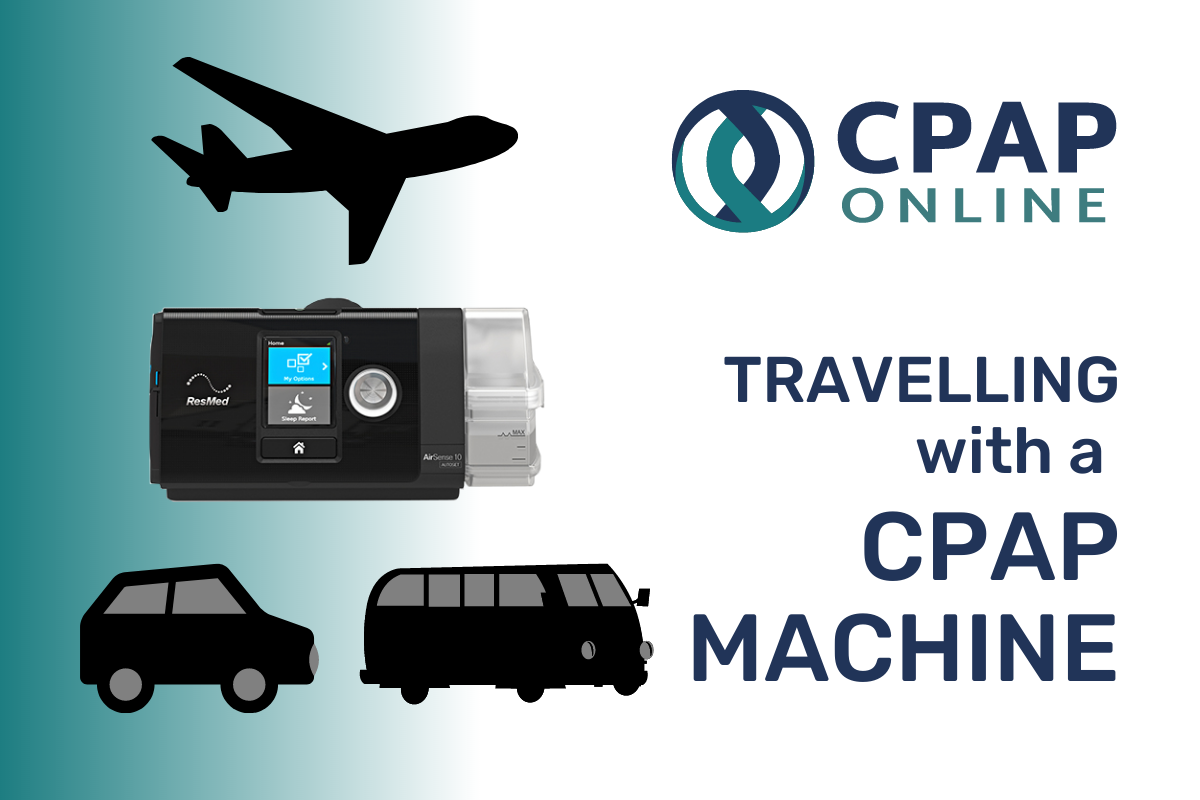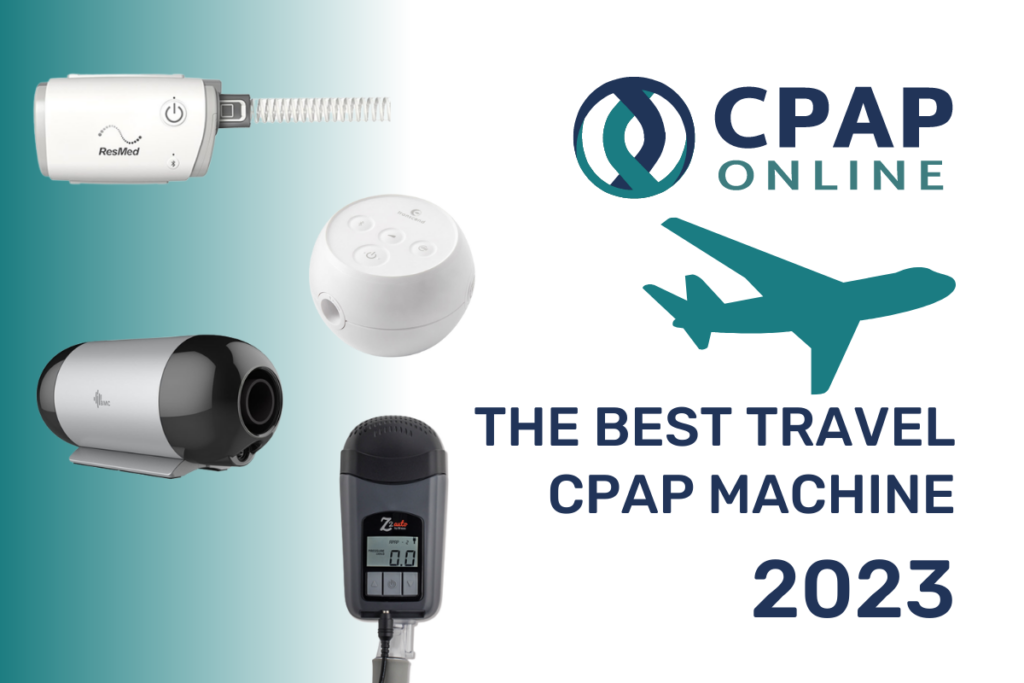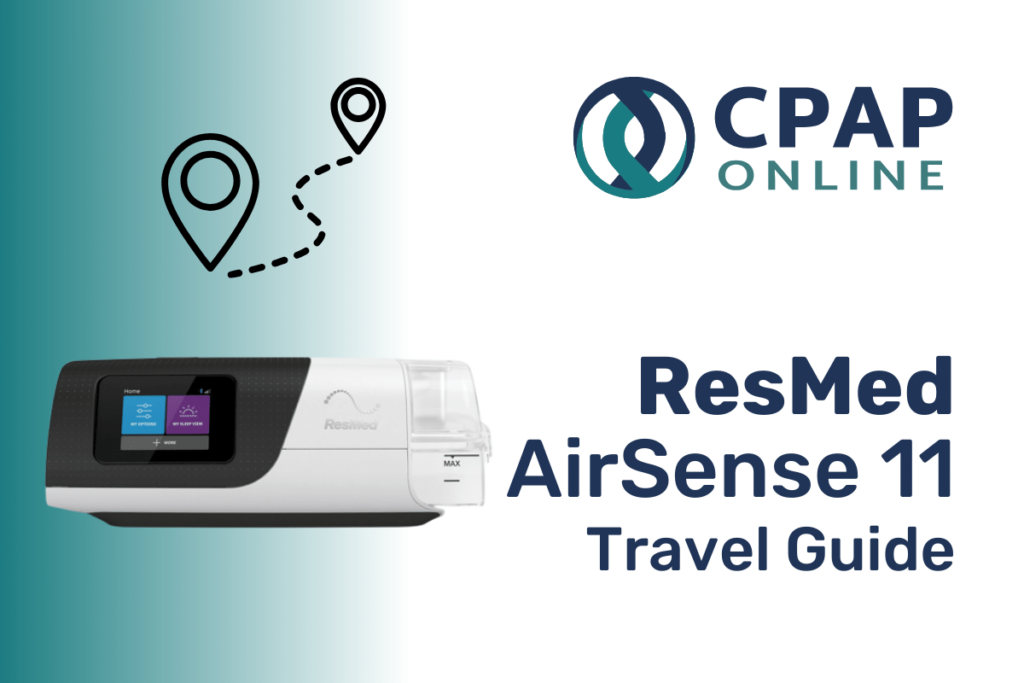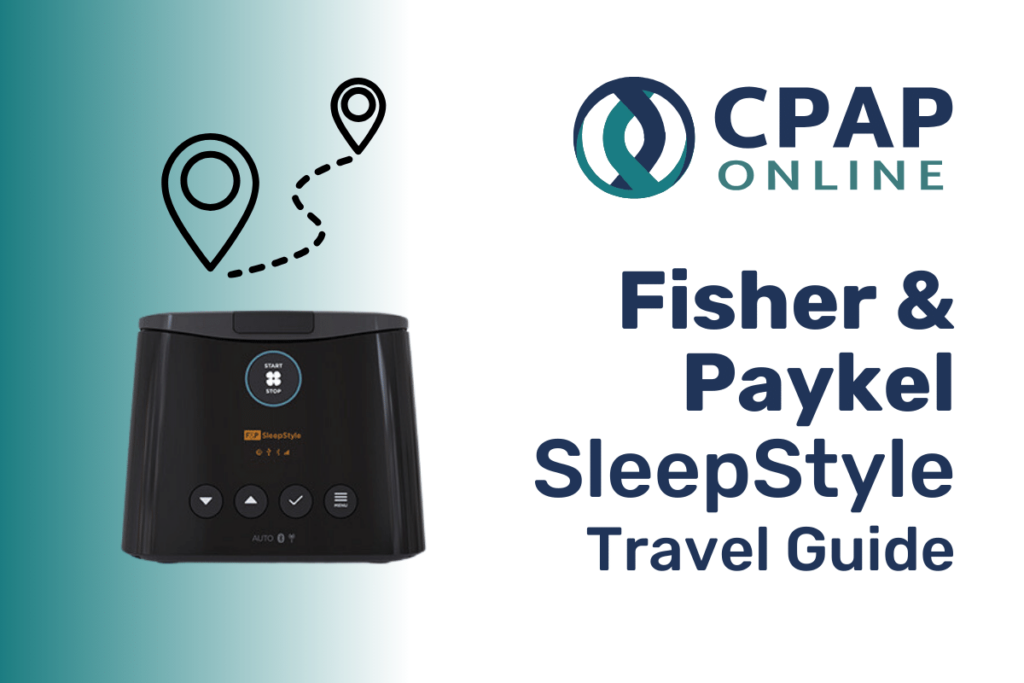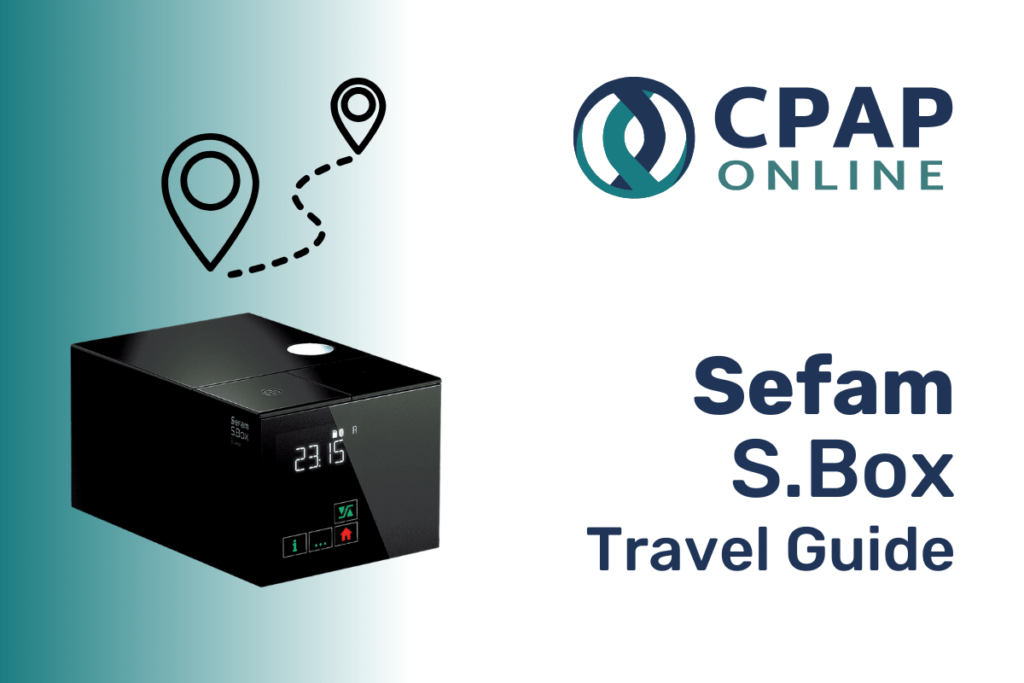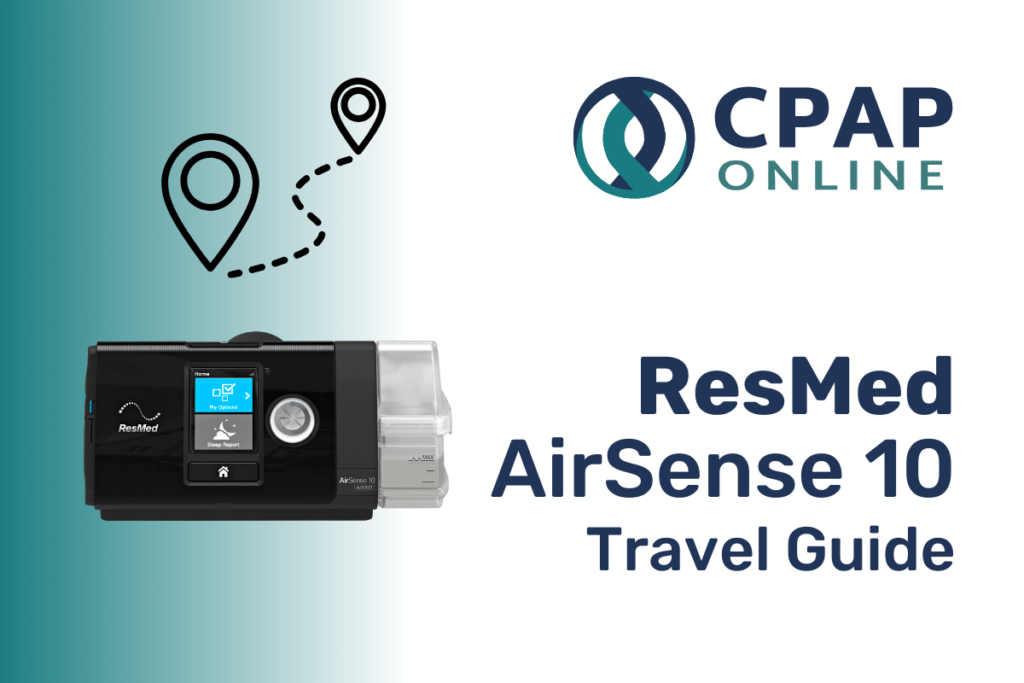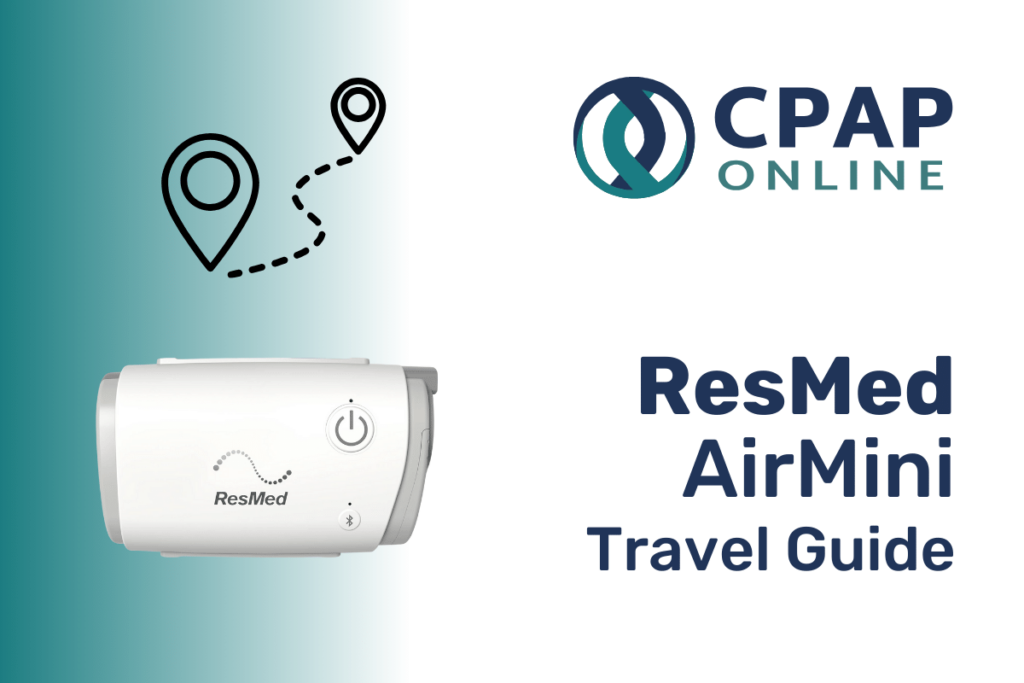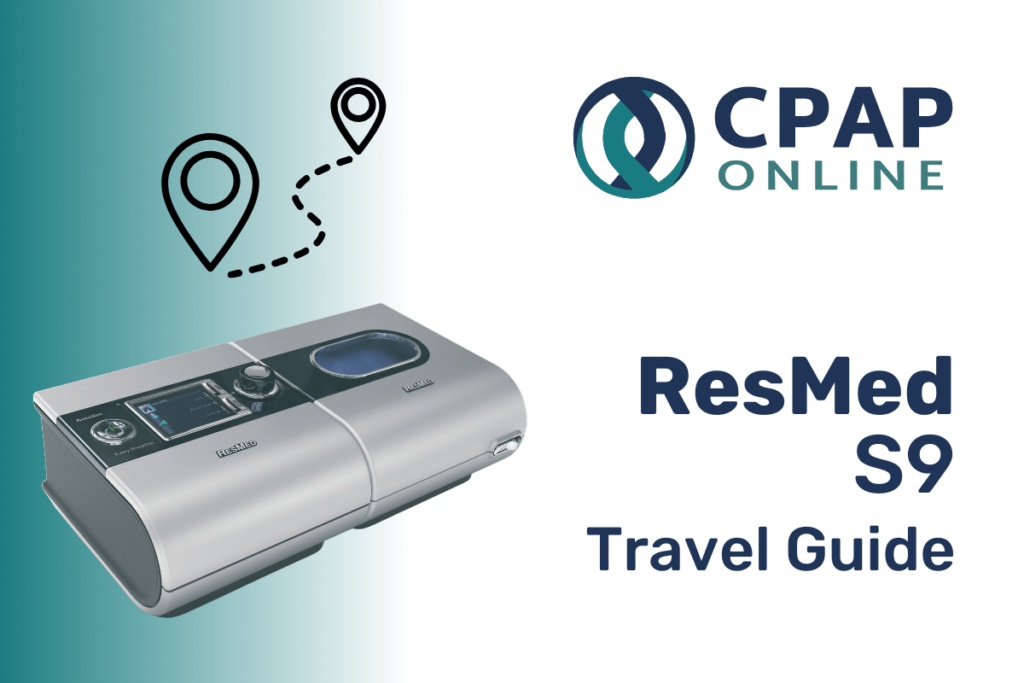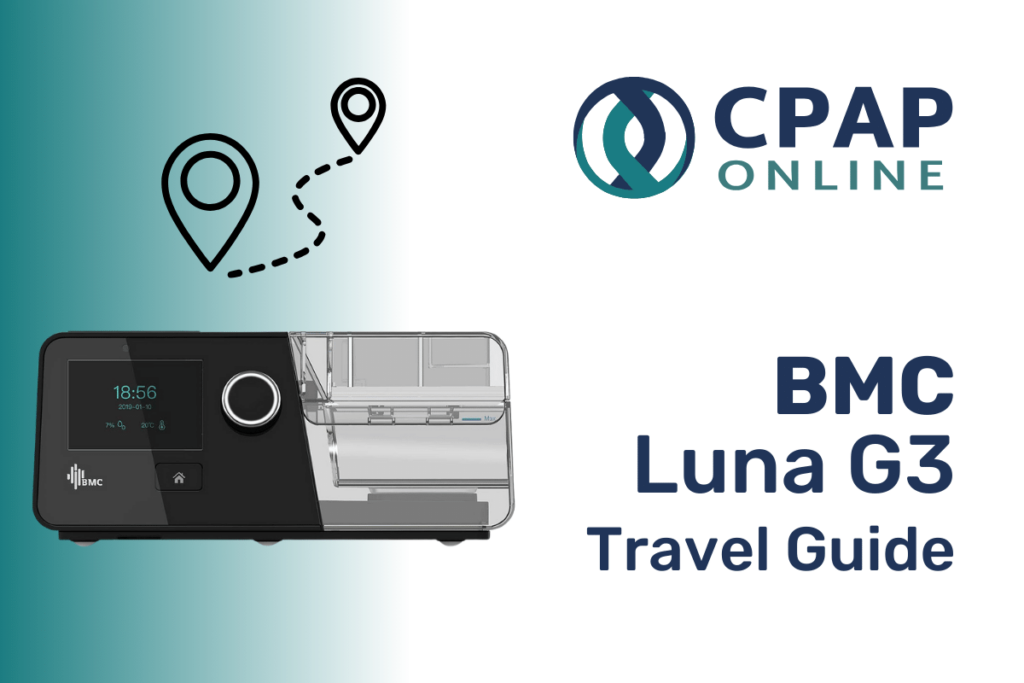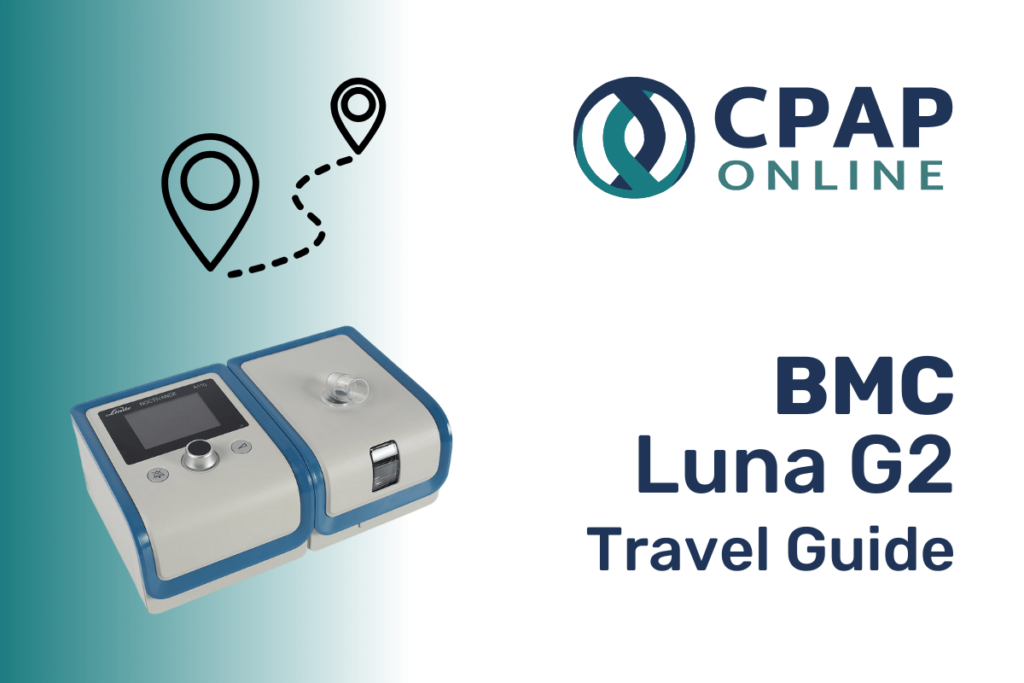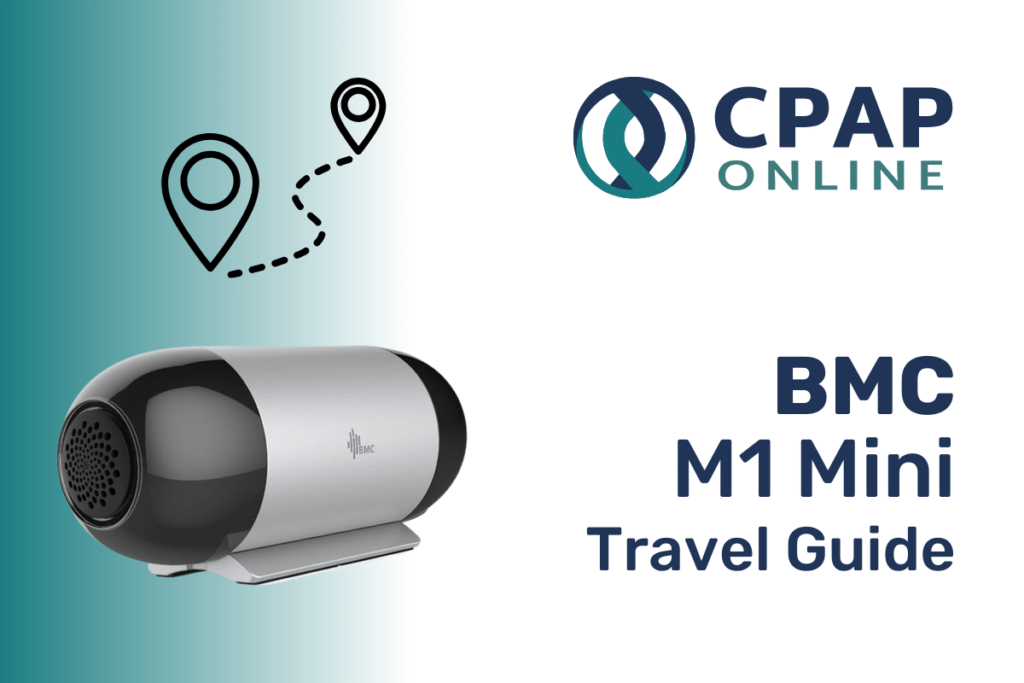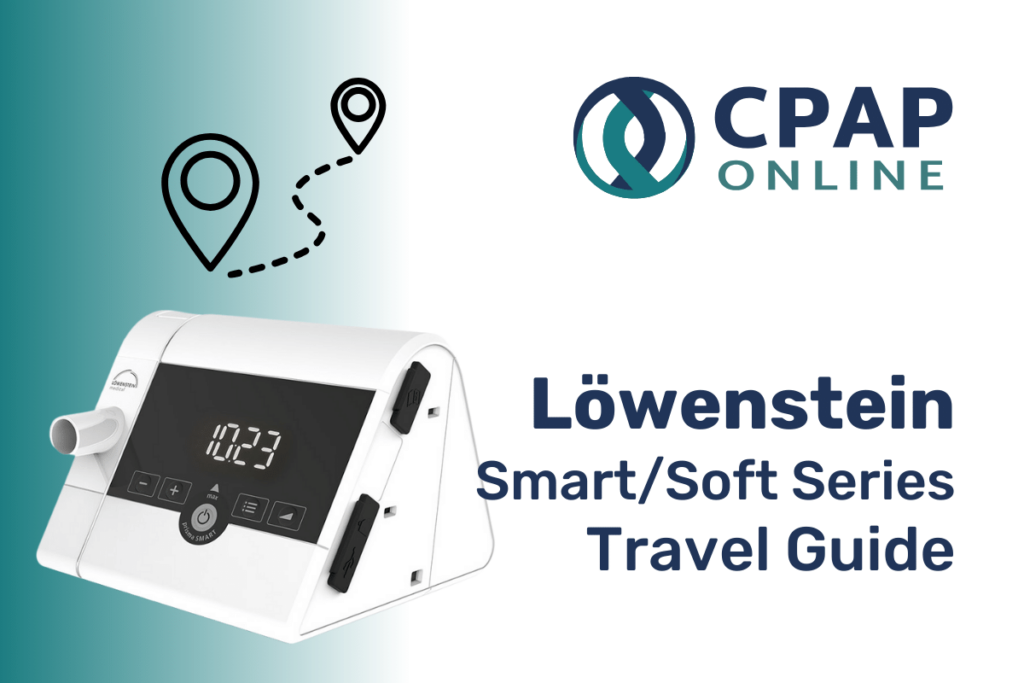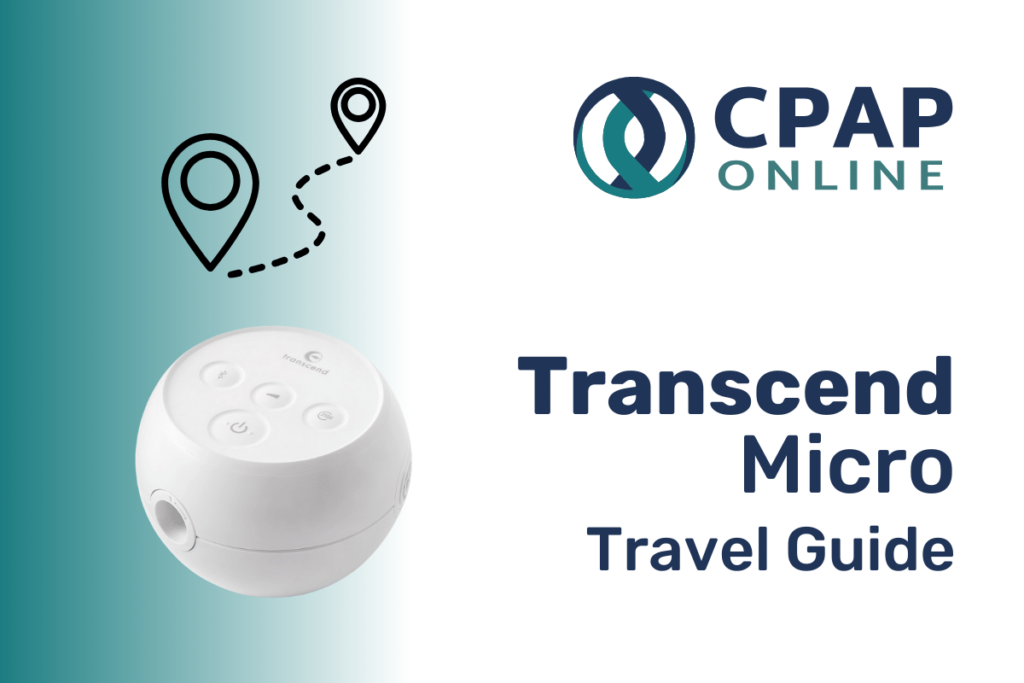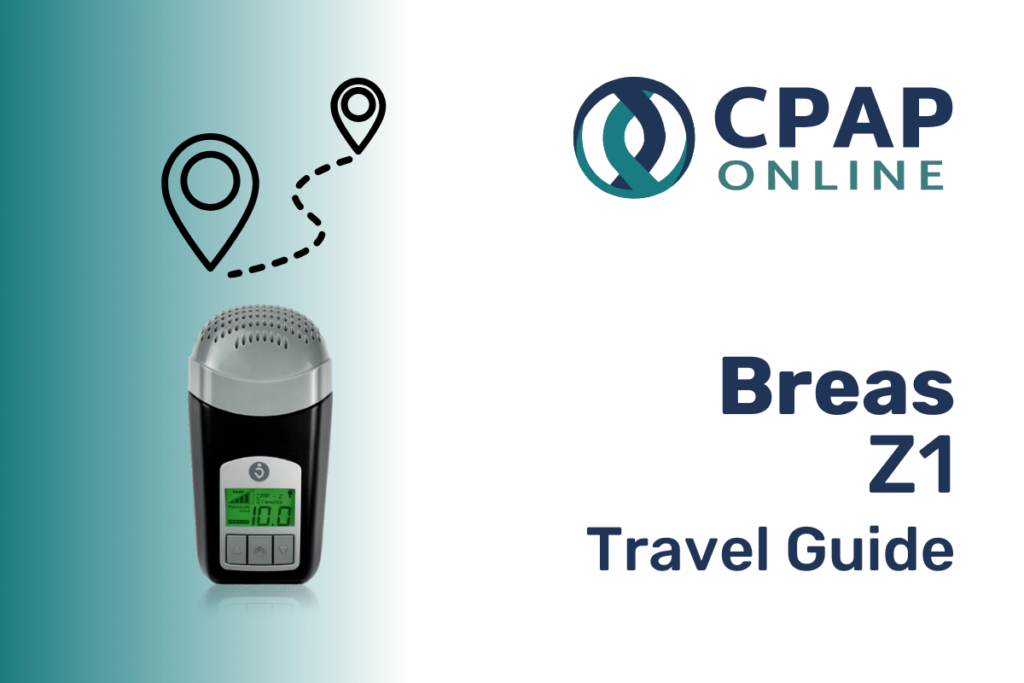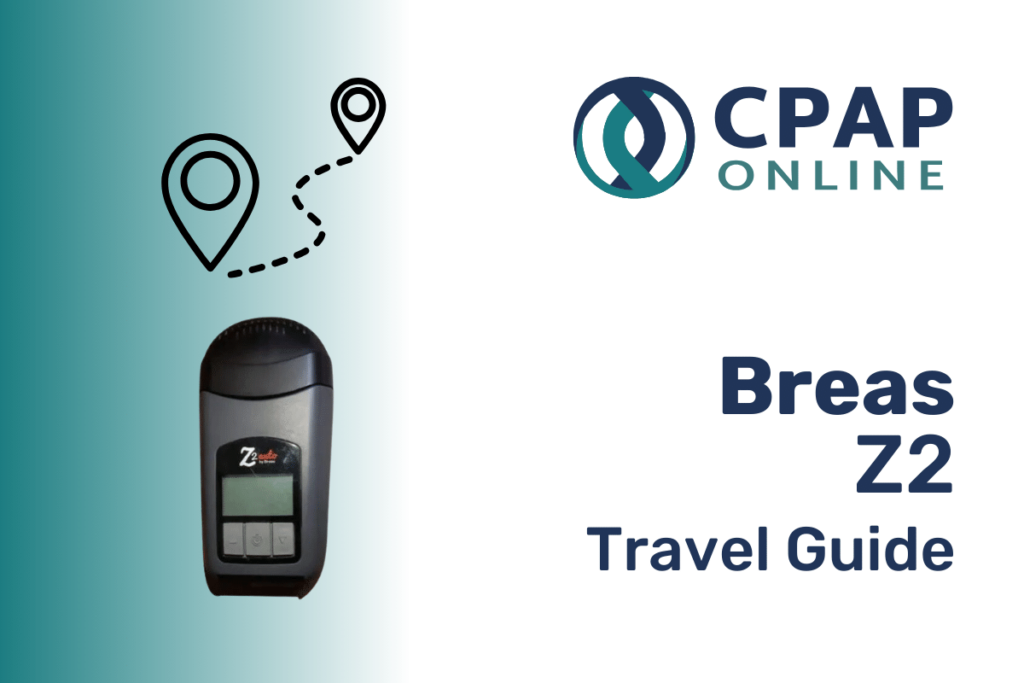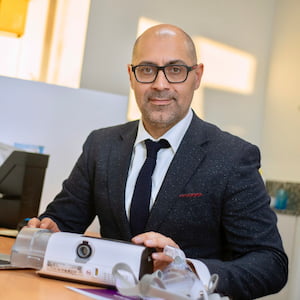Embarking on a journey to explore new destinations and create unforgettable memories is an exhilarating experience. However, for those who rely on a CPAP machine to manage sleep apnoea, travel can sometimes present challenges. Our experts here at CPAP Online Australia have received many questions from customers regarding travelling with their CPAP machine and so, this article exists to put these challenges to bed.
Should you consider buying a dedicated travel machine or travel with your full size machine?
When travelling with a CPAP machine, portability and size become crucial factors to consider. Full-sized bedside CPAP machines are typically larger and may not be the most convenient for travel. On the other hand, travel-specific CPAP machines are designed to be compact and lightweight. These portable devices are thoughtfully designed to meet the unique needs of travellers, ensuring comfortable sleep apnea therapy on the go. You can learn more about travel CPAP machines here.
Travel CPAP Machines: Your Guide to the Best Portable Sleep Solutions for Restful Journeys
In this comprehensive guide, we will delve into essential tips and considerations to make your travel with a CPAP machine smooth and stress-free, allowing you to embark on your journeys with confidence and comfort.
Travel CPAP Machines vs Full Size CPAP Machines
Travel CPAP machines are designed to be compact and lightweight, making them convenient for travel. However, whilst they are ideal for short trips and travel, using them as a full-time substitute for your regular bedside machine might be less comfortable. Their design prioritises portability over features like humidification, which may impact your sleep quality in the long run. Standard CPAP machines, with built-in humidifiers and more features, are generally more suitable for full-time use at home.
How to make your full size machine more portable
There are ways to enhance portability for full-sized machines. For instance, some CPAP models, like the ResMed AirSense 11, allow you to replace the humidifier with a side cover, making them more travel-friendly. By removing the humidifier, you can reduce the overall size and weight of the machine, making it easier to pack and carry. This is particularly a good idea as the humidifier tends to be a large source of power draw for CPAP machines, which is not desirable when travelling.
In addition to our broad, overarching advice that applies to all CPAP machines, we have also prepared the below set of individual travel articles, each dedicated to specific CPAP machine models. These guides offer in-depth information on how to travel with your particular device, ensuring that you’re well-prepared for your journey. Whether you use the ResMed AirSense 10/11, Philips DreamStation, or any other model, we’ve got you covered.
Click here to skip down to the rest of this article.
How do I prevent my mouth getting dry while using CPAP on the go?
The comfort and fit of your mask play a significant role in the effectiveness of your CPAP therapy. When travelling, it is important to consider mask options that are suitable for your needs.
When using battery power, the option of using a humidifier is limited as it may drain the battery quickly. In such cases, using a Heat and Moisture Exchanger (HME) mask is recommended. However, it’s important to note that ResMed’s HME masks are only compatible with the AirMini machine. Alternatively, BMC HME masks can be used with any machine, although they may not be as comfortable as regular masks
Things to consider when planning to travel with your CPAP machine
No adventure is complete without expert advice to make sure your travel experience is perfect. In this section, we’ll provide you with our extra bits of wisdom to ensure a seamless journey with your CPAP machine and answer some burning questions that you may have.
Will you be away from a power source?
When it comes to travelling with a CPAP machine, the first order of business is to find a power solution that will keep your therapy uninterrupted during the night. Thankfully, CPAP battery packs, such as those made by Medistrom, are here to save the day.
What is Medistrom?
Medistrom is a well-known company that specialises in providing innovative power solutions for CPAP machines. They are known for their high-quality and reliable backup power options that ensure uninterrupted therapy for CPAP users, especially during travel or in areas with limited access to electricity.
Medistrom’s CPAP battery packs are compact, lightweight, and compatible with various CPAP machines from popular brands. These battery packs act as a backup power source, allowing users to continue their therapy even in situations where mains power is not available, such as camping, road trips, or during power outages.
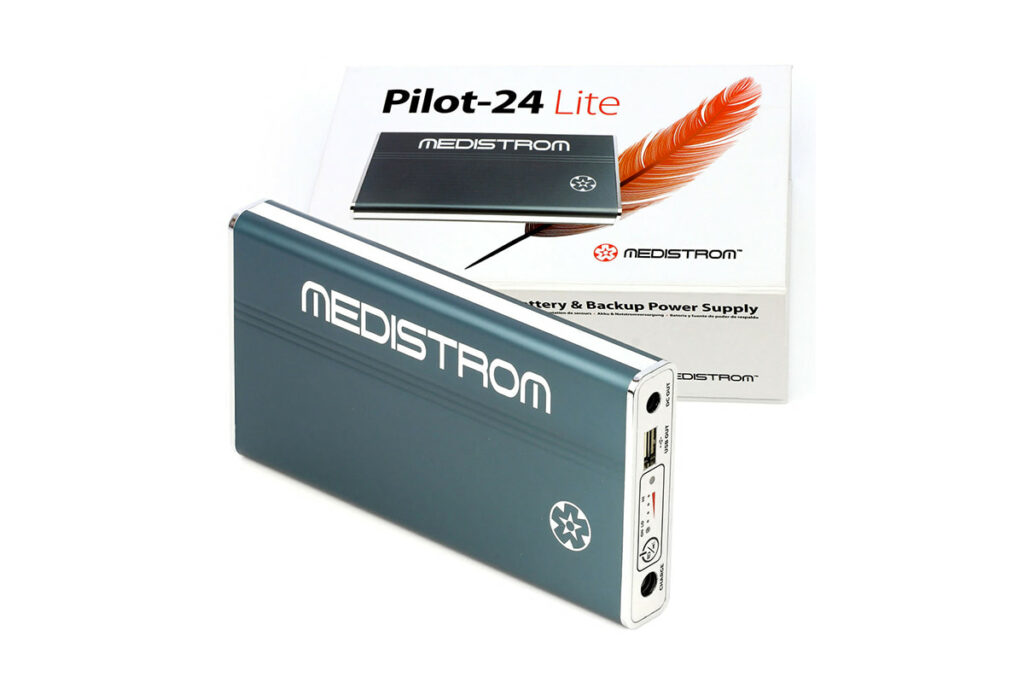
Medistrom Portable CPAP Battery Pack (12v or 24v Model)
Portable CPAP Battery For Travel
The Pilot-24 Lite and Pilot-12 Lite are a revolutionary CPAP & BiLevel power solution combining an ultra-portable travel battery with a backup power supply so you can be sure to have power at home or on the road whenever you need it. The Medistrom battery should provide 1-2 nights of power for your CPAP. As an added bonus the battery has a built in…
Not only is the CPAP battery great for travel, it’s an ideal backup power solution for home too. Attach the Pilot-24 Lite or Pilot-12 Lite in series between your CPAP and the wall and then rest is simple… If your power goes out, due to a storm or other anomaly, the Pilot Lite will take over automatically ensuring you continue to receive restful, uninterrupted sleep therapy. When the power comes back on the Pilot Lite will automatically recharge so it’s ready the next time you need it.
Current FAA regulations allow Sleep Apnea Therapy Devices (CPAP & BiPAP Machines) and Lithium Ion Batteries (like the one in this battery pack) to be carried onboard commercial flights and are usually not counted toward your weight limits; however it is always important to check with your airline prior to travel to determine exactly what requirements they have for carrying medical equipment on board.
The Medistrom™ Pilot-24 Lite Battery and Backup Power Supply for 24V PAP Devices is compatible with the following out of the box:
- ResMed AirSense 10
- ResMed AirMini
Furthermore, cables can be purchased separately for compatibility with the following list of devices.
- ResMed AirSense 11*
- ResMed S9*
- Sefam S.Box*
- Löwenstein Medical prismaSMART* (Included in Europe)
- Philips Respironics DreamStation Go*
- BMC Luna G3*
- Apex Medical iCH*
Medistrom also make the Medistrom™ Pilot-12 Lite Battery and Backup Power Supply for 12V PAP Devices, which is compatible with the following machines out of the box:
- Phillips Respironics DreamStation
- Philips Respironics System One S60
Just like the 24V version, separate cable kits can be bought to allow compatibility with the following:
- Phillips Respironics DreamStation 2
- DeVilbiss IntelliPAP I and IntelliPAP II
- HDM Z1
For eco-conscious users or those who spend extended periods away from a power source, Medistrom offers a solar charger designed to recharge their CPAP battery packs using solar energy. Their solar charger is portable and efficient, providing a sustainable power solution for CPAP users on the go.
Solar charging offers a sustainable and efficient way to recharge your CPAP battery while on the move. Solar chargers designed for CPAP machines can harness the power of the sun to charge your battery during the daytime. These portable solar panels are lightweight, foldable, and easy to take almost anywhere with you. However, although solar charging is an eco-friendly option, its effectiveness can vary depending on weather conditions and available sunlight so make sure you make plans accordingly!
How long will my CPAP battery last during travel?
The battery life of a CPAP battery depends on its capacity, the pressure settings of your CPAP machine, and any additional accessories used (e.g., heated humidifier and heated tube which are big battery drains). To estimate battery life in hours, divide the battery’s capacity in watt-hours (Wh) by the average power consumption of your CPAP machine in watts. Keep in mind that higher pressure settings and additional accessories may reduce battery life.
Medistrom recommends that you disable the humidifier, heated tubing and any other climate control feature on your CPAP machine to extend the life of the battery. With these settings in place, Medistrom’s expected battery life between charges is 1-2 nights of CPAP use, although they do not specify how many hours this is supposed to be.
Based on ResMed’s power consumption test conducted on the ResMed AirSense 10, you can expect about 13.5 hours out of Medistrom’s 95Wh batteries when operating the device as recommended by Medistrom (no humidifier or heated tubing), but this is subject to differ depending on your device settings and environmental factors. You can find the full owners’ manual for the Medistrom Pilot batteries here to learn more.
Which transport modes will you be using to travel?
The ideal method by which you should power your CPAP machine on the go is heavily dependent on how you intend on travelling.
Powering Your CPAP Machine In The Car
When you’re travelling by car and want to keep your CPAP battery charged while on the road, a cigarette lighter charger may be your best option. Some CPAP battery packs are equipped with a DC adapter that allows you to charge the battery using your vehicle’s cigarette lighter port.
While using the cigarette lighter charger is convenient, especially during road trips, it’s essential to be mindful of your vehicle’s battery. Charging your CPAP battery from the car’s battery can drain power, which might affect starting the car later. To avoid this, consider charging your CPAP battery while the engine is running or use a separate portable power station designed for CPAP machines.
Another accessory that can help on the road are DC-DC Converters. These converters plug into a cigarette lighter socket and convert their output to one that is suitable to power your CPAP machine. For example, the ResMed AirSense 10, AirCurve 10 and Lumis DC-DC Converter For Travel can take the current from a 12V output cigarette lighter socket and convert it to a 24V output (drawing approximately 1 amp of power). Alternatively, if your source of DC current is already 24V, the converter will ensure a cleaner, more consistent output so that you do not damage the sensitive electronics in your machine.
Please find below a complete list of DC/DC converters available at CPAP Online Australia:
DC/DC Converter for BMC Luna G2 & Linde Noctivance
BMC DC/DC Converter For BMC M1 Mini
BMC DC/DC Converter for G3 devices
ResMed AirMini DC/DC Converter
ResMed DC 12v and 24v S9 Model Converter
ResMed AirSense 10 DC/DC Travel Converter
ResMed AirSense 11 DC/DC Converter
Medistrom Car Charger for Pilot-12/24 Lite Batteries
Sefam Car Charger Cable for S.Box
Powering Your CPAP Machine In A Caravan Or RV
For travellers exploring the open road in caravans or recreational vehicles (RVs), charging your CPAP battery becomes convenient and seamless. Most caravans and RVs are equipped with electrical outlets, making it easy to connect your CPAP machine to the vehicle’s power system. This ensures a stable and consistent power supply for your CPAP therapy while you’re on the move.
Before setting off on your journey, ensure that your vehicle’s electrical system is compatible with your CPAP machine’s power requirements. Caravan charging offers a reliable solution for CPAP users who prioritise comfort and leisure during their travels.
Powering Your CPAP Machine In A Plane
Absolutely! CPAP machines are generally allowed on flights, and most airlines treat them as medical devices. To avoid any issues, we recommend that you contact your airline in advance to inform them about your medical equipment and ensure you meet their specific guidelines.
If you are travelling to a different country with your CPAP machine, make sure that you are aware of the travel guidelines for your device. Familiarising yourself with airline regulations will allow you to ensure a smooth experience during flights and will equip you to keep your CPAP machine in the safest possible conditions throughout the entire duration of your journey. Be sure to inform security personnel about your CPAP machine at airport security checkpoints and carry a copy of your prescription or a doctor’s notes to avoid unnecessary complications or questions about the purpose and function of your machine.
By considering these essential factors while travelling with your CPAP machine, you’re well-prepared to embark on a stress-free journey. With the right planning, backup power solutions, and adherence to airline regulations, you can enjoy your adventures while prioritising your sleep apnea therapy.
Where will you be staying while you travel?
Yes, you can bring your CPAP machine to hotels or rental accommodations. CPAP machines are portable and easy to set up, making them suitable for use in various lodging options. However, it’s a good idea to contact the hotel or rental provider in advance to inform them of your CPAP equipment, that you will need uninterrupted power during the night, and ensure access to a power outlet near the bed, otherwise you may need to bring an extension cord, backup power supply or CPAP battery with you. Many people like to also have their phone or other communication and/or alarm clock devices near their bed so make sure there are enough ports or that you bring an extender with you just in case.
Can I use my CPAP machine while camping or during outdoor activities?
Yes, you can use your CPAP machine while camping or during outdoor activities by using a portable power source, such as a battery pack or a solar charger. These power solutions allow you to enjoy CPAP therapy even in remote locations without access to electricity.
Can I use my CPAP machine in other countries?
Yes, you can use your CPAP machine in other countries. However, it is essential to verify the voltage requirements at your destination. Some CPAP machines have built-in universal power supplies, but others might need a voltage adapter to match the local power outlets. Additionally, make sure to carry the appropriate plug adapters for the country you’re visiting.
What should my cleaning routine look like while travelling?
Maintaining your CPAP machine is crucial for the effectiveness of your CPAP therapy and this is not an aspect of your therapy that should be neglected while you are travelling. We recommend that you pack travel-sized CPAP wipes or a portable cleaning kit to ensure your CPAP equipment remains clean and operational during your trip. If you’re looking for something to start with, CPAP Online Australia offers a wide range of cleaning supplies for CPAP cleaning and maintenance.
It’s best to avoid using tap water to clean your CPAP equipment, especially in unfamiliar locations. Tap water might contain impurities that could harm your machine or irritate your airways. Instead, use distilled water or pre-packaged CPAP wipes to ensure safe and hygienic cleaning on the go.
Prepare a Travel Checklist
We know that going on a holiday or otherwise travelling to any new place can be a rather exciting and nerve-wracking experience. Everyone always gets that feeling that they are forgetting something when they leave to go on a trip – reminder to make sure the tap isn’t running – but your sleep apnoea therapy should not be one of them!
To protect your CPAP equipment and accessories during your travels, we highly recommend that you invest in a dedicated carrying case designed specifically for CPAP machines. Here at CPAP Online Australia, we offer a selection of travel cases for the ResMed AirMini and for the Philips Respironics Dreamstation. Otherwise, what is most important is ensuring that your CPAP machine is securely packed and safe while you’re travelling.
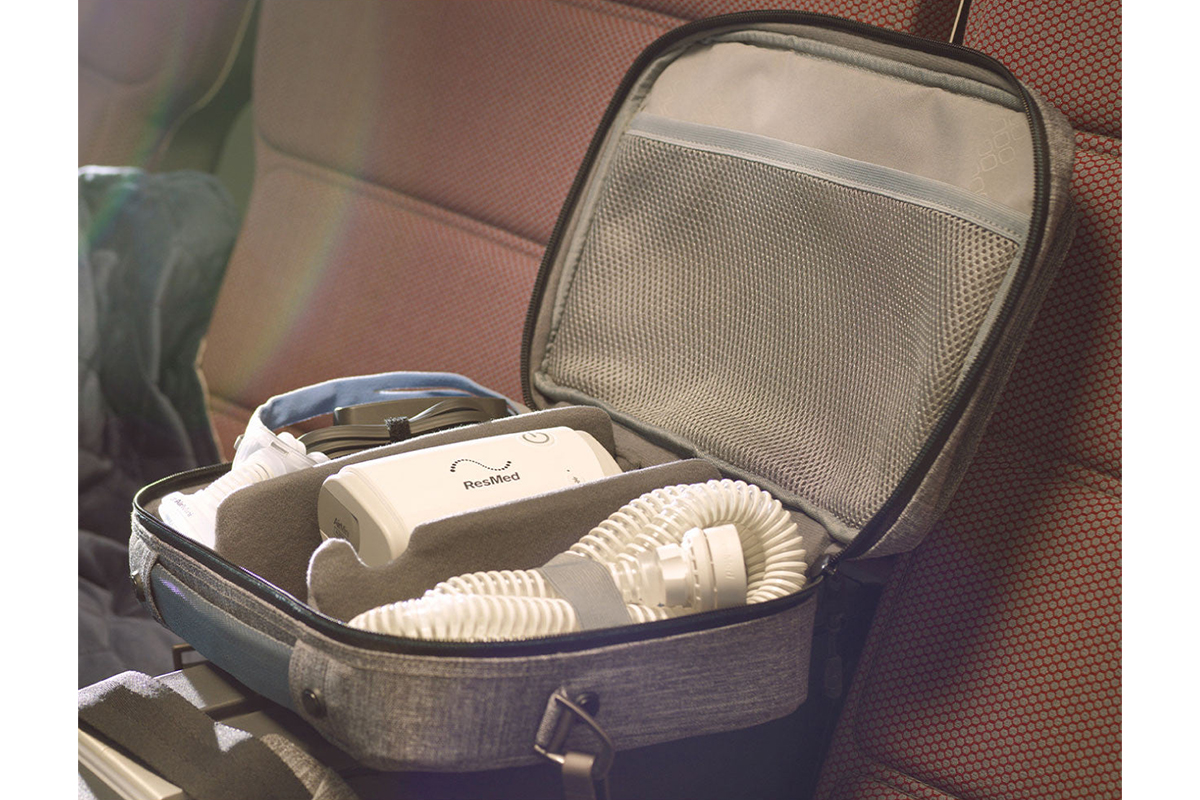
Make sure that you have packed a dedicated bag with:
- Your CPAP Machine
- Mask
- Tubing
- Power Cords
- Filters
- Mask Cushions
- CPAP Prescription and Doctor’s Note
- Other Spare Parts that may be relevant to you
